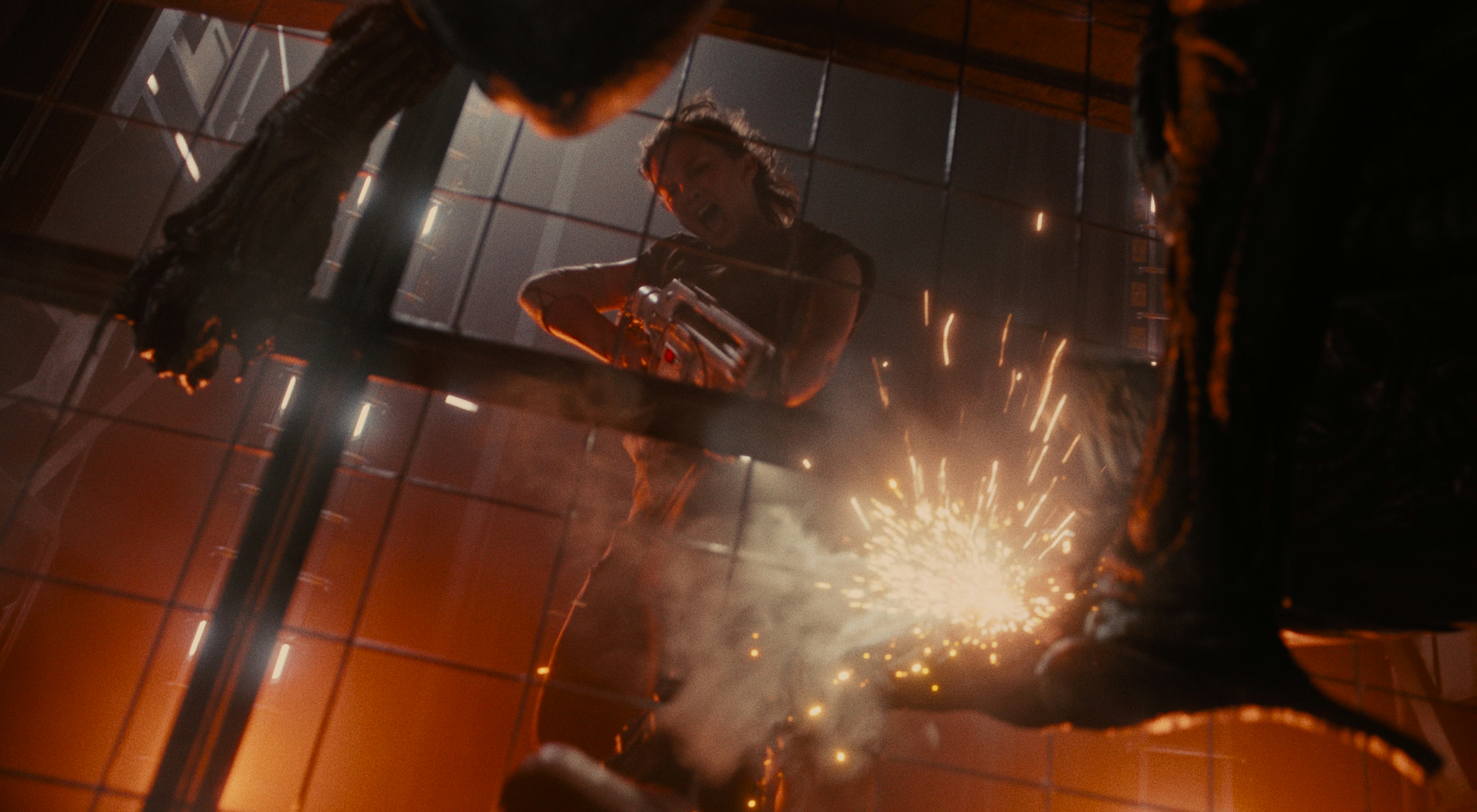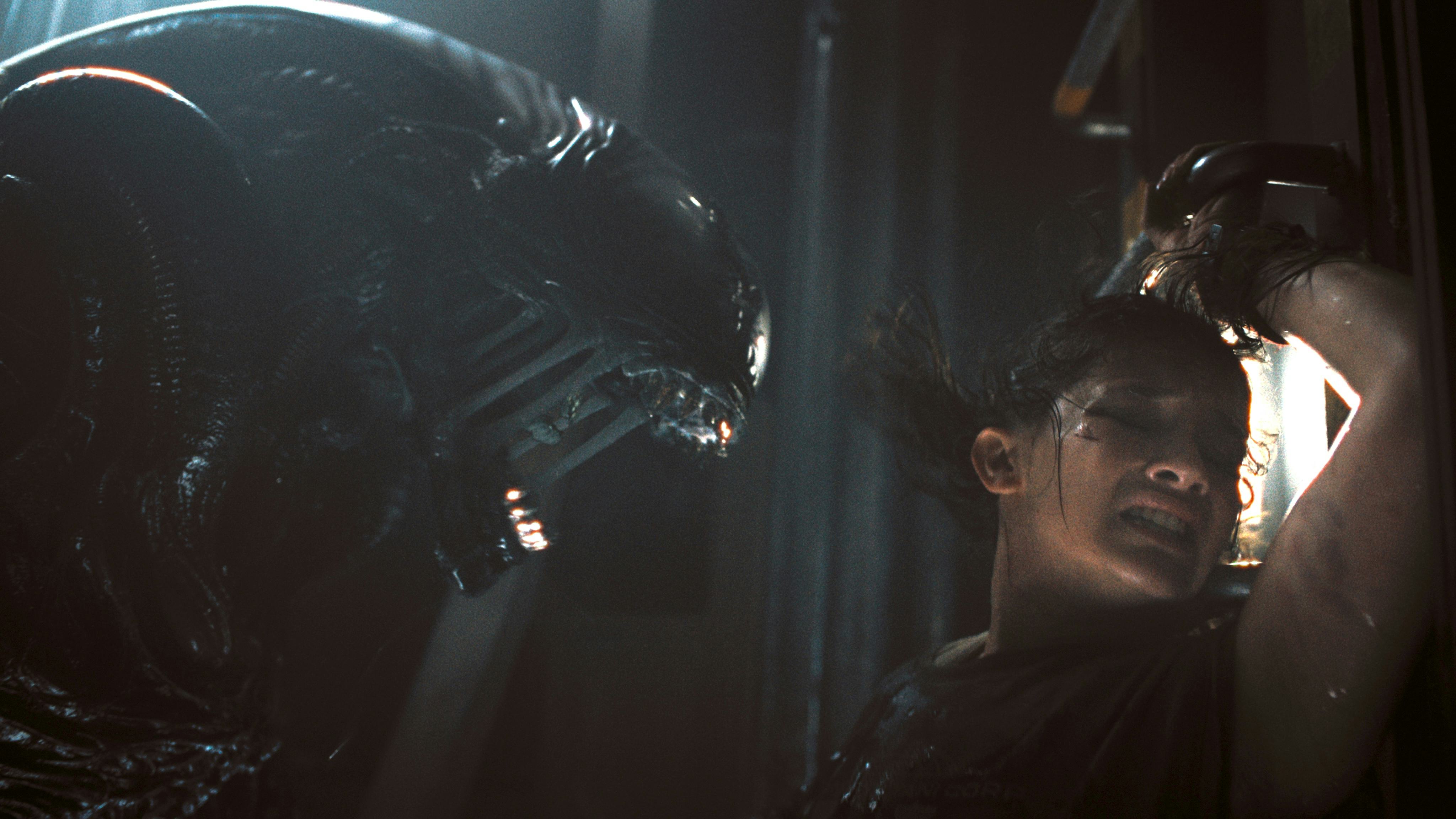
The most unexpected sci-fi success of the year has easily been the acclaim and box office slam-dunk of Alien: Romulus. Saddled with a strange subtitle, and a lot of continuity baggage stemming from eight previous installments in the franchise, Romulus could have been doomed for irrelevancy, and seen as yet another example of studios milking existing IPs for pseudo-nostalgic moneyshots. But, strangely, despite some of its flaws and reliance on some well-trodden tropes, Romulus is actually a solid sci-fi thriller and a strangely approachable entry into the Alien franchise. This no-frills, back-to-basics approach from director Fede Álvarez worked better than it maybe deserved to, and the result was one of the slickest horror movies of 2024.
And now that Romulus has just hit Hulu, here’s why you should stream it ASAP, in case you missed screaming in the theater this past August.
Alien: Romulus is technically a midquel, set between the events of Alien (1979) and Aliens (1986), though the location, characters, and specific events of the movie don’t rely on that continuity as much as you might think. Yes, it’s very helpful to be aware of what happened in Alien, but because this movie downloads backstory and exposition directly into the brain of the android character Andy (David Jonsson), the audience has a similar feeling. Whatever you need to know, the movie makes you remember retroactively, and quickly.
Starring Cailee Spaeny as the defacto heroine Rain Carradine, Romulus reveals itself fairly quickly to be a road trip-gone-awry horror movie that just happens to be set in the future, and in space. Without spoiling any specifics, Rain and her android brother-figure Andy are convinced by some of their friends to try and boost some supplies from an abandoned research lab that just happens to be in orbit of their depressing space colony. Yes, it’s easy for Rain and her cohorts to get off planet, but without suspended animation tech, they won’t get very far. One early scene in the movie gives us a glimpse of the kind of day-to-day life Rain is hoping for, but because this is a horror movie, we know that she’ll be lucky if she simply can return to the drab status quo.
As many critics have correctly noted, there’s a kind of Force Awakens/Ghostbusters: Afterlife vibe to how meticulously Alien: Romulus manages to play the hits from the franchise's past. Not all of these moments land, or even make sense. But because the collective culture basically forgot that Alien: Covenant (2017) even happened, Romulus feels like the first “normal” Alien movie since, well, Alien: Resurrection in 1997.

And while a few actresses have bravely filled the role of not-quite-Sigourney Weaver since then (Noomi Rapace in Prometheus and Katherine Waterston in Covenant) there’s something about Spaeny’s performance and character that feels the most grounded. Rain might be an off-the-rack archetype, and even remind you a little too much of Rey (Daisy Ridley) from the Star Wars sequels, but while you’re watching the movie, it’s hard to be upset by any of that. If Romulus is recycling or ripping things off from other movies, it’s only taking things that work really well.
In this way, Alien: Romulus is a relentlessly efficient horror movie, and an antidote to long, drawn-out prestige TV shows you might be tempted to binge instead. Once you start the movie, you’ll be unable to look away, and a third-act gross-out twist literally has to be seen to be believed. It’s hard to call Romulus a classic, or really even a reboot to the Alien franchise. Instead, it’s more like a very, very compelling detour. The original Alien was promoted under the tagline, “In space, no one can hear you scream.” But in Romulus, the screams are very audible, and that’s partially the point.


.png?w=600)




